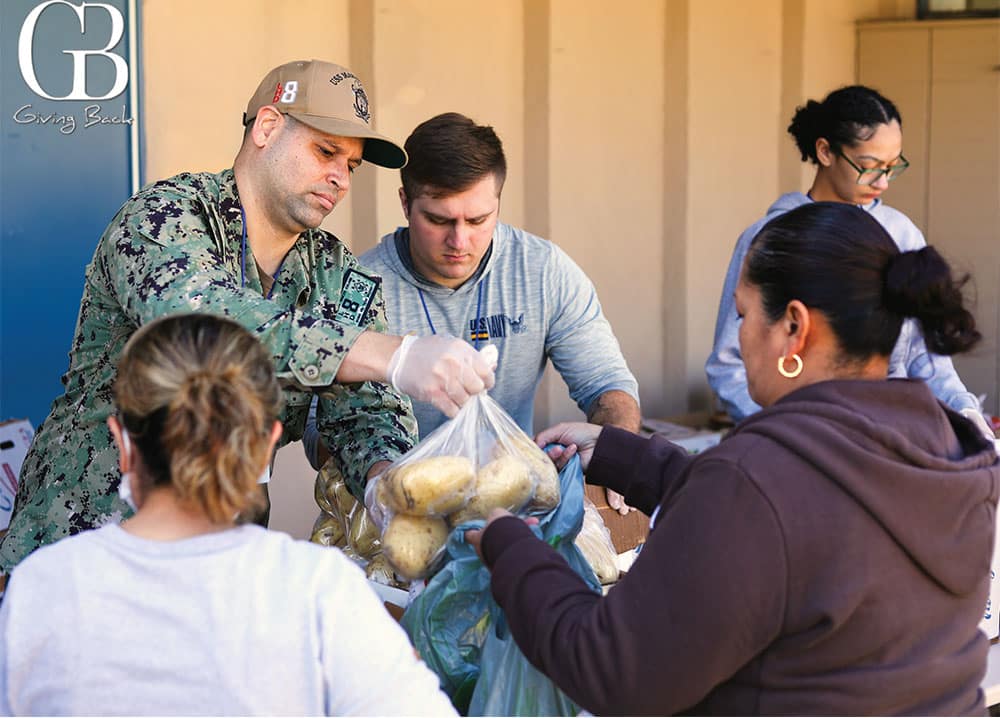When thinking of our local military community, it may not seem likely that food insecurity is a problem for active-duty military families and veterans. Yet, it is. According to Feeding America, the national organization of which Feeding San Diego is a partner food bank of, nearly a quarter of active-duty service members experience food insecurity. Additionally, one in nine working-age veterans live in food insecure households. These numbers are shocking to anyone who believes that those who protect or have protected our country should have their basic needs met.
“Every time there is help with food, we want to come out and get it because everything keeps going up. It is a lot of budgeting. My husband is deployed right now, and we just live on his income. I try to find things with Feeding San Diego and go to their programs. With everything increasing it helps a lot of people. This definitely helps military families feel appreciated. It feels like someone is looking out for us and we appreciate that.”
-Crystal, military spouse and mother of three receiving support from Feeding San Diego
According to the 2023 Military Economic Impact Report, more than 115,000 active-duty service men and women currently call San Diego home. Over 1.2 million San Diegans, 37% of our population, have direct ties to the military. Since 2018, when Feeding San Diego launched its Feeding Heroes program, the non-profit has been working with local partners to directly address the problem of food insecurity among military families and veterans. By partnering with non-profit organizations that directly serve the military, like Support the Enlisted Project (STEP), Courage to Call, and Us 4 Warriors, Feeding San Diego can provide food for service members and their families, and veterans, at trusted locations and often alongside wraparound services specifically for the military community.
The unique causes of food insecurity for military families include low pay for lower enlisted service members, the challenge of finding steady work for military spouses if they have to move often or live on base, unexpected expenses that crop up like moving costs and medical bills, high cost of living in cities where they are stationed, and the fact that many military family members do not qualify for food assistance programs because they are considered to have too much income. This is because the housing allowance they receive to help pay for housing counts as income. Meanwhile, causes of food insecurity for veterans include low income, especially for older veterans and veterans with disabilities, trouble finding work after leaving the military, and impact of military service on physical and mental health.
Feeding San Diego is proud to partner with seven local non-profits that support the military community, as well as schools on or near military bases, to provide nutritious food for regular food distributions around San Diego County, including on base at Camp Pendleton and Marine Corps Air Station Miramar.
www.feedingsandiego.org













